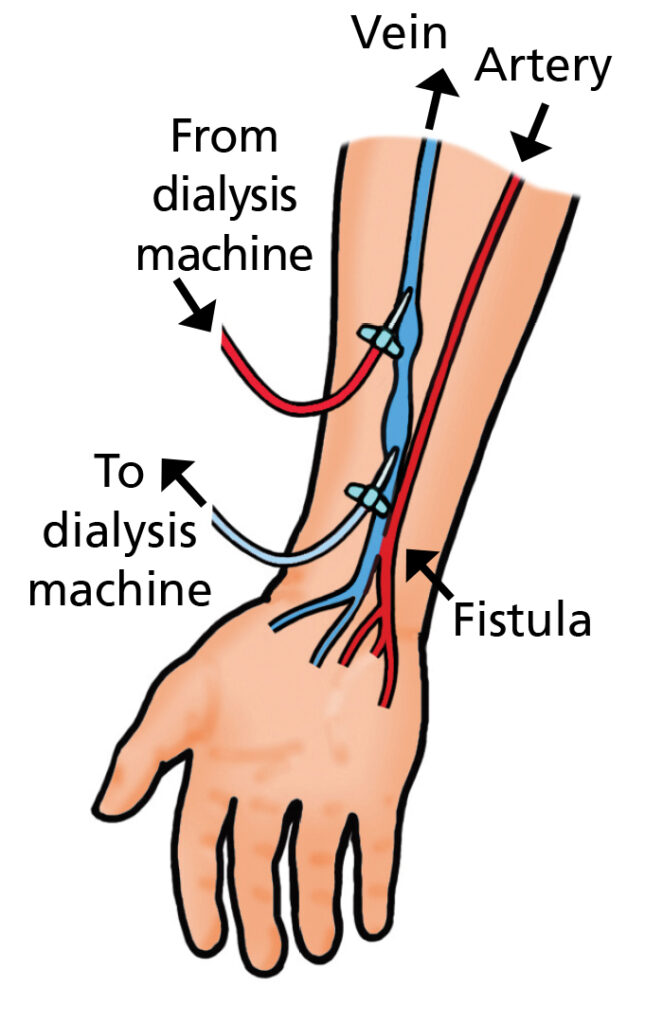This leaflet is to help you understand what a fistula for haemodialysis access is and the process involved to make a fistula.
What is a fistula
A fistula is where a connection is made between the artery and vein (two types of blood vessels in the body). These connected blood vessels grow bigger over time as more blood flows through it. A fistula can then be used to perform haemodialysis by having a needle (or two) inserted into it.
A fistula is usually formed at the level of the elbow or the wrist- your surgeon will tell you where your fistula will be.

How do you make a fistula?
A fistula is made by an operation. This is by performed under a general anaesthetic (you will be asleep). The operation lasts approximately 1-2 hours.
You can usually go home on the same day as your operation. There will be a dressing on after the operation which needs to stay in place for 48 hours. It can be painful after the operation, but paracetamol can be taken if needed.
Sometimes you need a second operation to make the fistula so that it can then be used for dialysis. Your surgeons will tell you if a second operation is required. After your operation(s), the fistula needs approximately 6 weeks to grow before it can be used.

What are the benefits to having a fistula?
A fistula is the best way of accessing the blood stream for long-term haemodialysis. As there is no plastic dialysis line, the risk of infection is reduced. Also, plastic lines can move or fall out which requires them to be replaced. This does not happen with a fistula.
Having a fistula does require needles to be inserted for each dialysis session. This can seem scary. However, we use numbing cream or cold spray to reduce pain. The play team can also support you when preparing to have your fistula needled.
What are the benefits to having a fistula?
Please let the kidney team know you are interested in having a fistula formed. We will then arrange for you to see one of our surgeons. Scans will also be required to check your vessels are suitable to have a fistula formed.
Further information
Useful Websites
Contact us
If you have any further questions, please discuss these with your doctor in clinic or contact the team on one of the numbers below: